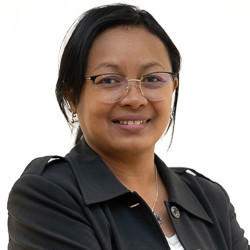Sao Tome and Principe
The Context
The Republic of Sao Tome and Principe is a lower middle income, developing small island state with a fragile economy. It is highly vulnerable to shocks.
Made up of two main islands and four islets on the equator in the Gulf of Guinea, it lies 350 km off the west coast of Africa. Covering just 1,001 sq. km, this Portuguese-speaking country has 197,900 people and income per head of US$1,670 in 2014.
Cocoa, coffee, and palm oil exports are the cornerstone of the economy, though tourism is increasing. Annual growth in gross domestic product (GDP) has typically exceeded 4 per cent since 2012.
Sixty-eight per cent of the people live in poverty, of whom 22 per cent in extreme poverty. Income per head has been falling since the mid-1990s, which, compounded by weak cocoa prices, has spurred rural-urban migration.
Half the country is covered by primary forest of which 30,000 ha, or almost a third, is protected. Elsewhere agroforestry dominates, with crops varying according to altitude. Farmers grow taro and cocoyam at lower levels, bananas, cacao and oil palm at mid-level and fruit and breadfruit trees at altitude. Specific farming systems have also developed for market gardening, pepper, tree fruit and to grow sugar cane for artisanal alcohol production.
Further development of livestock farming is limited by recurring swine fever and the need to import animal feed.
The Strategy
In the Republic of Sao Tome and Principe, IFAD loans are aimed at improving the livelihoods of smallholder farmers and fishers.
Activities focus on promoting public-private partnerships with socially and environmentally aware companies willing to undertake to invest and remain in the country for as long as necessary to build pro-poor value chains, including organic and fair trade value chains.
Our approach empowers poor rural people to take charge of their own development, particularly through their own associations, working with service providers, non-governmental organisations and the Government.
Key activities include:
- improving the country's infrastructure and processing technologies;
- supporting agricultural services and markets; and
- improving people's access to markets and services
We design our projects to ensure that the measures form part of a flexible framework which should gradually evolve to become self-sustaining.
Country Facts
Two thirds of the population of Sao Tome and Principe in poverty.
Unusually, urban poverty is higher than rural poverty because there are too few employment opportunities in towns, especially for young people.
Since 1985, IFAD has supported 6 programmes and projects in Sao Tome and Principe, investing US$26.6 million and directly benefiting 28,520 rural households.
